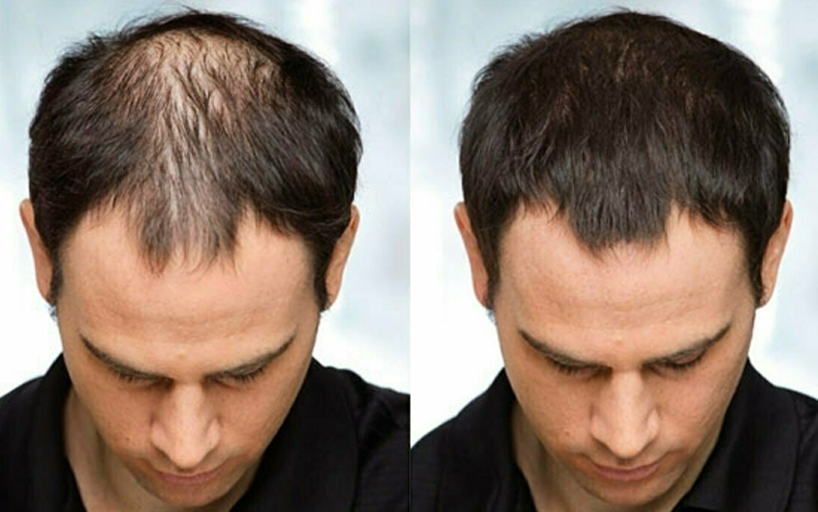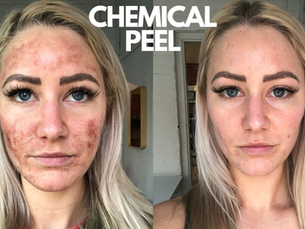
The Types of Hair Loss We Treat
Progressive Thinning
Gradual loss of hair volume and density, often starting at the crown or along the part line — the most common form of genetic hair loss.
Receding Hairline
Hair pulls back at the temples or forehead, creating an M-shaped pattern — typically seen in male-pattern baldness.
Sudden Patches (Alopecia Areata)
Round or irregular bald patches that appear rapidly, sometimes overnight. Often linked to autoimmune triggers or stress.
Postpartum & Hormonal Hair Loss
Hair shedding following pregnancy, menopause, or hormonal conditions like PCOS or thyroid imbalances. Common but treatable.
Stress or Illness-Triggered Shedding
Diffuse hair fall caused by high stress, surgery, crash dieting, or illness. Often seen 2–3 months after the event.
Scalp-Related Hair Loss
Hair affected by scalp inflammation, infection, or buildup — such as in seborrheic dermatitis, folliculitis, or scarring alopecia.

Hair loss can happen for many reasons. At Manchester Dermatology Clinic, we begin by identifying the root cause. It may be:
-
Genetic (pattern baldness in men or women)
-
Hormonal (menopause, thyroid issues, post-pregnancy)
-
Nutritional deficiencies (iron, vitamin D, B12)
-
Autoimmune conditions (such as alopecia areata)
-
Stress, illness or certain medications
We don’t guess. Our dermatologists carry out full assessments and arrange blood tests or scalp analysis where needed to guide treatment.
-
In many cases, yes. Hair loss can often be slowed, stabilised or improved, especially when diagnosed early. The sooner we start, the more effective the treatment. Our goal is not just to help regrow hair, but also to preserve what you have.
Hair growth is slow. Some treatments begin to work within weeks, but visible changes usually take three to six months. Our team tracks your progress with regular reviews and photographs to measure improvement accurately.
That depends on the cause. Temporary conditions like stress or illness may only need short-term care. However, genetic or hormonal hair loss usually requires ongoing maintenance to avoid future thinning. We explain what’s realistic and tailor follow-up accordingly.
Yes, although the causes are often more complex. Female patients are assessed with attention to hormonal cycles, perimenopause or PCOS if relevant. Some medications used for men are not suitable for women, but alternatives are available.
Hair loss is a medical condition, not just a cosmetic issue. At Manchester Dermatology Clinic, your care is handled by GMC-registered dermatology consultants who look beyond symptoms. We aim for long-term results, not short-term fixes or sales-driven solutions.
Hair loss Treatment Pricing
Hair Loss Consultation (Adult)
Dermatology Consultation
Personalised Treatment plan
From £120
Types of Treatments

Topical Treatments
01
For early-stage hair thinning or patchy loss, topical or prescription treatments may be recommended as a first step or alongside other therapies:
-
Minoxidil (Topical)
A proven solution to stimulate hair growth and slow down loss. Often used for male and female pattern baldness. -
Prescription-Only Solutions
Medications like Finasteride (for men) help address hormonal causes of hair loss by reducing DHT levels. -
Dermatology-Led Diagnosis
Accurate scalp and root analysis helps identify whether your hair loss is due to inflammation, hormonal imbalance, stress, or autoimmune conditions like alopecia areata.
These treatments are tailored to your pattern, cause, and stage of hair loss — not one-size-fits-all.

In-Clinic Regrowth Procedures
02
When visible thinning or patches progress, our in-clinic solutions offer effective, minimally invasive intervention:
-
Platelet-Rich Plasma (PRP)
Uses your own blood plasma, rich in growth factors, to stimulate dormant hair follicles and encourage regrowth. Ideal for early to moderate hair thinning. -
Microneedling + Growth Serums
Boosts circulation and creates micro-channels for deeper absorption of regenerative serums, supporting follicle repair. -
Targeted Scalp Injections
Corticosteroid injections may be used for alopecia areata or inflammatory scalp conditions, reducing immune attack on hair follicles.
These procedures are designed to strengthen existing follicles, reawaken dormant ones, and slow further loss.

Holistic & Supportive Care
03
Hair loss is often linked to underlying health or lifestyle factors. We investigate these through:
-
Blood Tests & Hormonal Screening
Identifies imbalances in iron, thyroid, or hormones that may be contributing to your hair loss. -
Stress-Linked Hair Loss Care
For cases triggered by trauma, childbirth, illness, or stress (e.g. telogen effluvium), we support recovery with both treatment and time-sensitive reassurance. -
Dermatology-Coordinated Referrals
When needed, we coordinate with GPs or endocrinologists for comprehensive care.
Each treatment plan is built around your specific hair loss pattern, medical history, and long-term goals — whether it’s stopping the loss, regrowing hair, or boosting scalp health.
Our Expert Dermatologist.
Our expert dermatology team combines medical excellence with a personalised approach.
Led by GMC-registered consultants, we bring years of experience in treating both complex skin conditions and delivering advanced cosmetic care. At Manchester Dermatology Clinic, you’re in the hands of trusted specialists who are dedicated to helping you feel confident in your skin.
Consultant Dermatologist
Dr. Sarah Quill

Dr. Quill is passionate about treating both medical and cosmetic concerns, from eczema and psoriasis to pigmentation and ageing skin.
Dermatology Practitioner
Syedehzahara

With a strong foundation in clinical dermatology, Syedehzahara provides expert support in diagnosing and managing a wide range of skin conditions.
Consultant Dermatologist
Dr.Morgan James

With over 15 years of clinical experience, Dr. James specialises in mole checks, skin cancer screening, and minor dermatological surgery.










